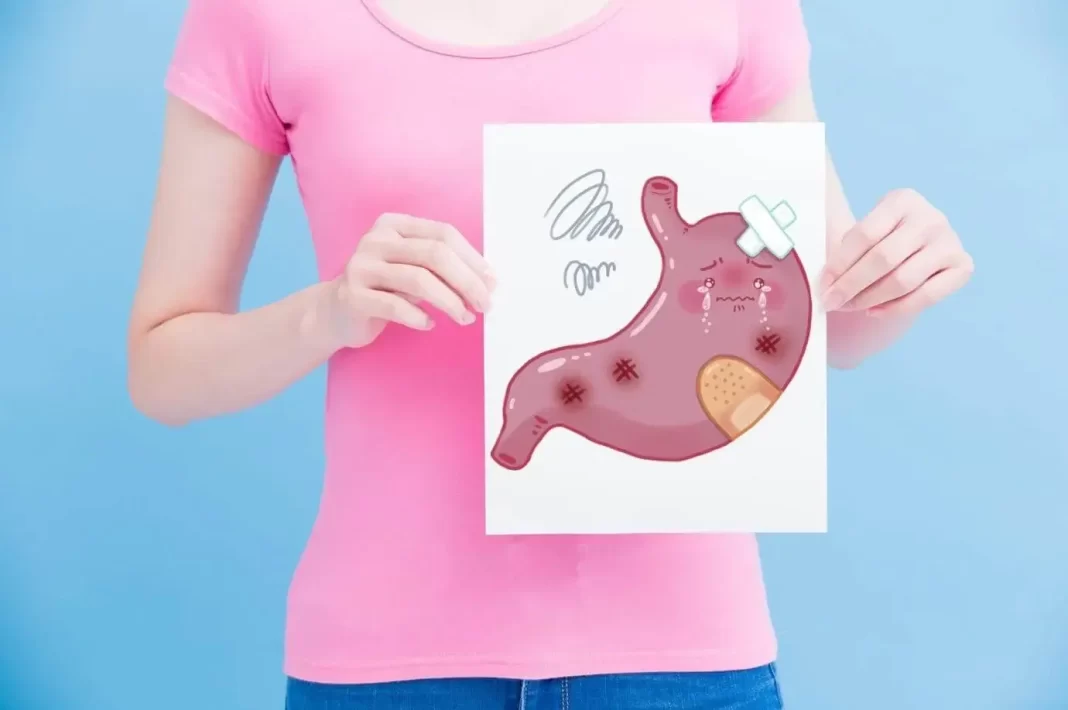Believe it or not, your gastrointestinal tract has more of a role to play in your health than digestion. Within the intestines, there is a microbiome that influences your immune system. This means that the health of your gut affects every other part of body, from the dryness of your skin to your daily outlook on life. The effects of this microbiome in your GI tract don’t end there. If you happen to be suffering from any of the issues listed below, there is a chance your intestinal microbiome holds the answer.
Moodiness
Whenever you start to feel low, it’s time to consider the health of your digestive system and what you have been eating. You might recognize that, whenever you start to feel a certain way, you automatically crave certain types of foods or ingredients, like salt and sugar, for immediate satisfaction. However, a diet that is rich in processed sugars and salt can lead to an unhealthy microbiome in the intestines, which in turn, affects your mood. Certain strains of bacteria will create toxins that infiltrate the intestinal and blood barriers, dampening your mood. Meanwhile, good bacteria produce serotonin, the happy hormone.
Frequent Illness
The gut is the first line of defense against viruses that enter our bodies. The main reason is because you can consume the vitamins, nutrients, and phytonutrients that contribute to a strong immune system. Further more, eating foods like fermented kimchi, sauerkraut, or yogurt the contains probiotics increases the amount of beneficial bacteria in the intestines, which can help improve immunity and digestion.
Poor Sleep
Our circadian rhythm—the natural waking and sleep cycle—is closely linked to our gastrointestinal tract. Part of this cycle is influenced by when you eat and how much. If you eat too much in the evening, your body cannot digest it all before bedtime, which can lead to bloating and gas. Learning how to time your meals with your periods of sleep can even help you get to sleep faster. For example, consuming foods rich in the amino acid tryptophan can increase your melatonin, which promotes relaxation.
Urinary Tract Infections
Did you know that more than 80% of urinary tract infections (UTIs) happen because of an overgrowth in bacteria like E. coli? When you have poor gut health, strains of bad bacteria like E. coli can proliferate in your body, whereas a healthy microbiome can easily fight off foreign invaders and viruses.
Thrush
Thrush is a fungus that rapidly grows around the mucus membranes of the oral cavity or other areas of the body and occurs when the immune system has been compromised, allowing candida to multiply unchecked. To prevent this, you need good bacteria that fights off candida. Lactobacilli, a strain of beneficial bacteria found in fermented foods, can create an environment in the body that prevents thrust and other ailments like candida (or yeast) infections or bacterial vaginosis. This is especially beneficial for women who are most at risk for yeast overgrowth.
Weight Gain
Feeling heavier around the middle? The bacteria in our digestive system play a major role on how much calories we consume and the amount of weight we gain. Imbalanced intestinal microbiota and low bacterial diversity in the GI tract is often a source of weight gain in obese individuals. Conversely, leaner people often have incredibly rich and diverse microbiomes. The lower weight is attributed to diets high in fiber and whole grains, healthy fats, and vegetables that are high in prebiotics (such as onions, shallots, and leeks).
Eczema
When bad bacteria outnumbers the good bacteria in your digestive tract, the result is inflammation along the lining of the intestine. For some, this can cause a number of dermatological problems, like eczema. Benefical microbes are tasked with cleaning up toxins from the body and soothing inflammation, balancing the immune system, and patching up a “leaky” GI tract. Another way to soothe eczema is to avoid the foods that would trigger the condition by upsetting your digestive system.
Heartburn
Heartburn is caused by stomach acid that rises up through the esophagus and creates a painful burning sensation. The underlying issue is the relaxed sphincter between the esophagus and the stomach, which allows for some acid to escape during digestion. A common theory suggests that the longer the stomach takes to breakdown food, because the intestines cannot work efficiently, the more fermentation happens prior to digestion. This creates gas that forces acid up into the esophagus. By eating probiotics and supporting a healthy microbiome with apple cider vinegar, you can decrease the risk of heartburn.
Bloating
A gastrointestinal tract that is functioning poorly is one reason bloating occurs. Another reason is too much salt or sugar. When food cannot be broken down, digestion slows, fermentation happens too soon, and gases increases in the belly, causing painful distention. By introducing live bacteria supplements, either with probiotics like kombucha, kefir, yogurt, kimchi, or other food items, you can improve your digestion and help your intestines better break down sugars and absorb nutrients faster. Also, you should never cram in food. Eat until you’re full at a relaxed pace to ensure motility and satiety.
Hay Fever
Oversensitive immune systems are the main cause of hay fever, and with 70% of our immune system found in our digestive tract, it’s no surprise that having a healthy belly is a player in warding off hay fever. Probiotics have been found to repopulate the microbiome with beneficial bacteria, and one study even found that those who used a lactobacilli probiotic for five weeks saw improvement in their allergies and watery eyes.
These 10 health problems are related to the health of your digestive tract and microbiome. Keep your immunity against ailments like hay fever, thrush, UTIs, and colds high with prebiotics and probiotics that feed the beneficial bacteria living in your intestines. Remember that the health of the gut-brain depends on your lifestyle choices, so eat well, move well, and sleep well to ensure that you are keeping your belly happy!
